Canadian Citizenship Certificate (Proof of Citizenship)
A&M Canadian Immigration Law Corporation
A Step-by-Step Guide for U.S. Citizens and Residents
This guide is written for people living in the United States who are
eligible for Canadian
Citizenship (by birth in Canada or through a Canadian parent) and need official
proof of citizenship i.e. A Canadian
Citizenship Certificate (sometimes called “proof of citizenship”). It
also includes a short section for readers outside the U.S. at the end.
What is a Canadian Citizenship Certificate?
A Citizenship
Certificate is IRCC’s official proof that you are a Canadian citizen.
You can
receive it as an electronic certificate (e-certificate) or paper certificate.
You cannot use a citizenship certificate as a passport or government
photo ID. It proves
citizenship status, and is typically used to obtain a Canadian passport, a Social
Insurance Number, or to show status to employers or schools.
Who should use this guide?
U.S. citizens and residents who:
- Were born in Canada and now live in the U.S., and want proof of citizenship; or
- Were born in the U.S. (or another country) and have a Canadian parent who was born in Canada or became a naturalized Canadian before you were born (citizenship by descent).
Quick self-check: common U.S. scenarios
1. Born in Canada, now living in the U.S.
Apply for a certificate (first-time or replacement). Your effective date of citizenship will be
your date of birth.
2.Born in the U.S. to a Canadian parent
You may already be Canadian. You’ll need your U.S. birth
certificate showing parentage and proof your parent was
Canadian at your birth (e.g.,
Canadian birth certificate or citizenship certificate).
3. Replacing an old citizenship card/certificate
You must return any previous certificates or cards (including
pink transmission copies). You can’t hold more than one valid
certificate.
Choose your application route (from the U.S.)
You can apply online or by paper. IRCC
will mail approved certificates to U.S. addresses;
if your address is outside Canada and the U.S., delivery goes via
the Canadian embassy/consulate you select.
Online application (recommended for most in the U.S.)
- Apply if
you’re getting a first-time certificate or replacing
a lost/stolen/damaged one.
- You’ll upload
one digital citizenship photo and your supporting documents.
If you choose a paper certificate, IRCC will mail it to your U.S.
address; if you select an e-certificate, you’ll download it from your
online account.
Paper
application (by mail or at a consular office)
- Submit by mail or at
a Canadian embassy/high commission/consulate (useful if you live
outside Canada/U.S.).
- Include two
printed citizenship photos and required documents.
- Fee (per
person): CAD $75, paid online.
What you need to prepare
1) Documents that establish your claim
- Born in
Canada: Canadian birth certificate.
- Born in the
U.S. to a Canadian parent:
- U.S. birth
certificate showing parentage, and
- Proof your
parent was Canadian at your birth (Canadian birth
certificate or citizenship/naturalization certificate). - Legal
parent at birth: Since July 2020, a non-biological legal
parent listed on your original birth record can pass down
citizenship (e.g., in surrogacy contexts).
2) Identity documents (U.S.-friendly list)
Provide two valid IDs (name + DOB; at least one with
photo). If you can’t provide Canadian ID from the U.S., foreign (U.S.)
government IDs are acceptable (with translation only if not in
English/French). Typical examples include a U.S. passport or state
driver’s license.
3) Photos
- Online
application: 1 digital citizenship photo that
meets IRCC specs (upload the photo and photographer info).
- Paper
application: 2 printed citizenship photos meeting
IRCC specs (do not
staple/glue to the form).
4) Translations (if applicable)
Any document not in English or French needs a translation
and an affidavit by the
translator (if not a certified translator in Canada).
5) Previous certificates (if replacing)
Return all prior citizenship/naturalization certificates and
any pink transmission copies; you cannot hold more than one valid
certificate.
E-certificate vs. Paper Certificate
- E-certificate: Fast
delivery to your IRCC account; valid for proving citizenship; certificate
number starts with “X.”
- Paper
certificate: Mailed to your U.S. address if
you live in Canada/U.S.; number starts with “K.” Both are
valid proofs; neither is a passport or an identity card.
What IRCC officers verify
IRCC confirms your identity, effective date and basis
of citizenship (birth in Canada or descent), whether your Canadian parent
was Canadian before your birth, name/date-of-birth changes, and that previous
certificates are accounted for.
Mini-checklists (U.S. readers)
A) Born in the U.S. to a Canadian parent
- U.S. birth
certificate (shows parentage)
- Proof parent
was Canadian at your birth
- Two IDs
(e.g., U.S. passport + state driver’s license)
- 1 digital
photo (online) or 2 printed photos (paper)
- Fee receipt
(CAD $75) + translations if any
B) Born in Canada, now living in the U.S.
- Canadian
birth certificate
- Two IDs (one
with photo)
- 1 digital
photo (online) or 2 printed photos (paper)
- Fee receipt
(CAD $75)
C) Replacement of an old card/certificate
- Return all
prior certificates/cards (and pink transmission copies)
- ID documents
+ photo(s) + fee receipt Where IRCC will send the certificate
- Mailing
address in the United States or Canada: IRCC mails
certificates directly to you.
- Address
outside Canada/U.S.: IRCC delivers via the Canadian embassy/consulate you
choose.
Sources (IRCC Operational Instructions & Guides)
- Applications
for citizenship certificates (who can apply, required documents, officer verifications).
- Guide for
Online Applications — CIT 0001 (U.S. delivery,
digital photo, ID rules, when paper is required).
- Guide for
Paper Applications — CIT 0001 (paper route, two printed photos,
fees, submissions by mail/consulate).
- Documents
establishing citizenship (what proves descent, what to submit).
- Types of
citizenship certificates (what’s valid/invalid; re-lamination).
- Valid proofs
of Canadian citizenship (e-certificate vs paper; “X” vs “K”; usage
limits).
- First-generation
limit — status & interim measure (updated).
- Urgent
processing for proof of citizenship (reasons, how to
request from the U.S.).






